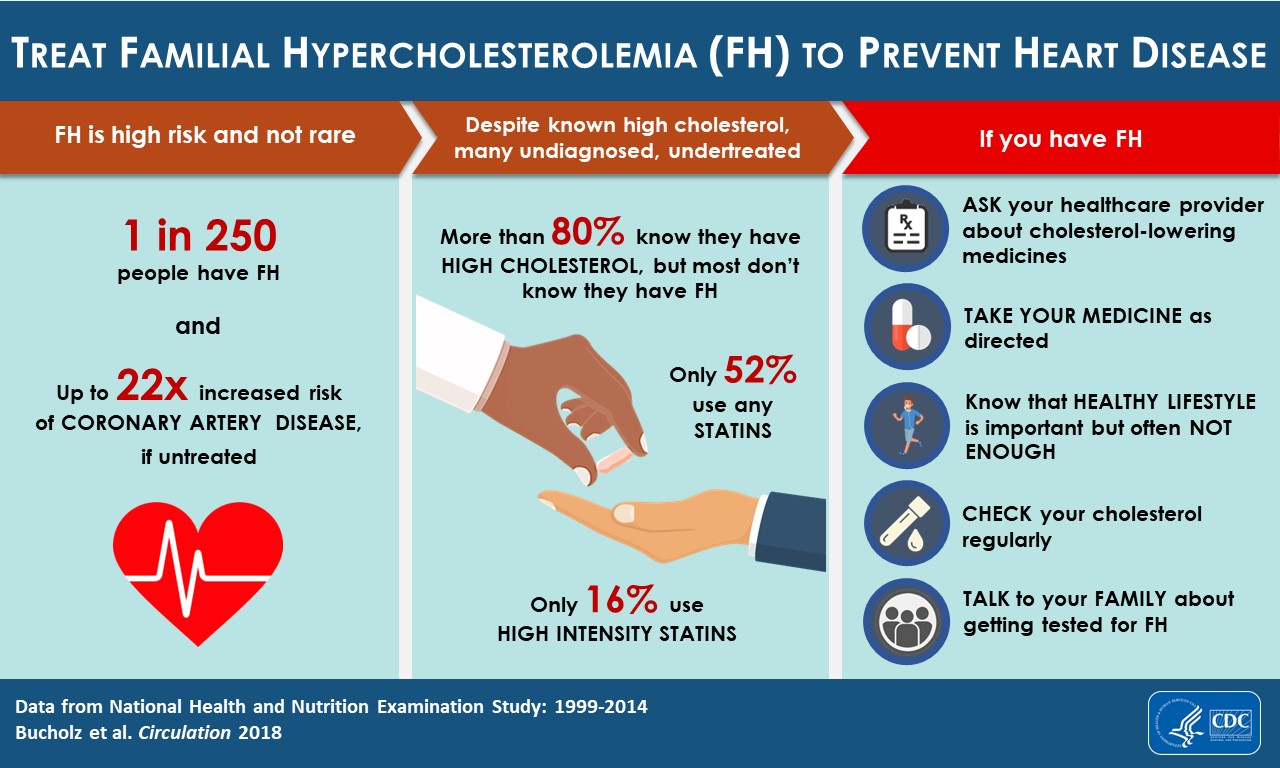Key points
- If you have familial hypercholesterolemia (FH), you will need to take cholesterol-lowering medicines such as statins to control your cholesterol levels.
- A healthy lifestyle and physical activity are important but will not be enough to lower your cholesterol to a healthy level.
- You might need to take more than one type of cholesterol-lowering medicine.

Treatment overview
If you have familial hypercholesterolemia (FH), having a healthy lifestyle and being physically active are important, but often are not enough to lower your cholesterol to a healthy level. You will need to take cholesterol-lowering medicine to control your cholesterol levels. In most cases, you will need to take more than one type of cholesterol-lowering medicine to lower your LDL cholesterol to a healthy level.
Treatment options
The most commonly prescribed medicines are statins. For children diagnosed with FH, statin therapy in childhood may be required, often starting by age 8-10.

Other treatments for FH include
- Cholesterol absorption inhibitor (ezetimibe)
- Bile acid sequestrant
- PCSK9 inhibitors
- Lipoprotein apheresis
- Bempedoic Acid (Nexletol)
If you have homozygous FH, you might need additional treatments to lower your LDL cholesterol, including
- Lomitapide (marked as Juxtapid in the United States)
- Liver transplant
- Evinacumab
These options all have risks and benefits and should be discussed with your healthcare provider or lipid specialist to find out which ones are best for you.
Prevention
If you or a family member have FH or high LDL cholesterol, it is important to maintain a healthy lifestyle along with taking your medicine. Making healthy lifestyle changes for your family can benefit your children who may be at risk for FH and promote healthy habits that they will continue as adults. The following are steps that you can take as a family:
- Eating a healthy diet low in saturated fats, trans fats, salt (sodium), and drinks with added sugar, and high in fiber, fresh fruits, and vegetables
- Being physically active
- Not smoking
- Limiting your alcohol use
- Checking and controlling your cholesterol and blood pressure
- Managing your diabetes, if you have it
Learn more about what you can do to reduce your risk of getting heart disease.
